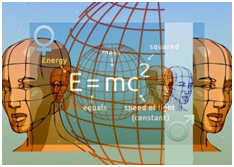First International Symposium Toward A Unified Science Of Love
New Tools That Empower Those Who Serve and Those Being Served
The Human Development Company is planning the first ever symposium on the Science of Love to initiate dialogues between researchers, academicians and authors who have various theories and ideas on the subject, as well as those interested in the application of these ideas. The Science of Love has significant implications for: child development, social emotional learning, K-12 and higher education systems, parenting, marriage, relationships, aging, psycho-therapeutic interventions, stress management, healthcare, and individual and employee well-being and productivity. Besides sharing the latest tools and concepts with professionals in these areas, our goal is to inspire more collaborative efforts to develop ever more effective tools. We can do this by undertaking collaborative research, examining concepts that have been put forth, and creating a more cohesive language for expressing and explaining the phenomenon we call love.
Stefan Deutsch, the inspiration behind the symposium, is founder of THDC. He developed the theory that love is nourishment over three decades ago, and has taught its application to psychotherapeutic interventions on the faculty of such prestigious conferences as The Society for Psychotherapy Research, Brief Therapy Conference and so forth. As a psychotherapist he has worked with individuals, with a special emphasis on marriage and the family. He has given workshops on aging; worked with widows and widowers groups; taught PTAs on parenting, and given teacher and staff development trainings and so forth. His work in all the areas mentioned above has confirmed his concepts on love and development to be efficacious. His theory was given further momentum by Fredrickson’s research and 2013 book, LOVE 2.0.
The conference will take place in Manhattan or Long Island. A beautiful venue on Long Island has also been offered to our organization free of charge, which holds about 400 people. We feel that the level of participation will turn out to be larger – so we are planning on finding an alternate space in the NYC/Long Island area - to cover that possibility. The plans also include having the presenters be taped for a documentary. Projected date for the symposium – Sunday, June 26th, 2016, with a special afternoon only meeting, for those interested in creating a unified science, on Saturday, Jun 25th, followed by a Dinner of Unconditionality (meet and greet - open to all).
SPONSORS -
The Morrison Foundation - Long Island, NY
Elsarings.com - USA
We are looking for other academic entities as well as corporate and individuals sponsors.
Topics for discussion that have been suggested include:
-
-
-
Why do we experience both joy and pain when it comes to love?
-
Is unconditional love possible?
-
Can people be taught how to love? If so, how?
-
Is there a relationship between love and physical and emotional health?
-
Is psychology and psychotherapy addressing love sufficiently?
-
What role does love play in human development?
-
Would having a unified theory and common terminology help develop a science of love?
-
Would having a common terminology help lay people understand what love is?
-
Is there a relationship between love and intimacy; marital dynamics; relationships;parenting; cognitive interactions; attachment; emotional development?
-
Is there a relationship between love and interpersonal relationships?
-
-
THE TEAM - PANELISTS participating are:
Harville Hendrix, PhD - Getting The Love You Want - Founder of Imago Couples Therapy - Keynote Speaker
Helen LaKelly Hunt, PhD - Getting The Love You Want - - Founder of Imago Couples Therapy - Keynote Speaker
Fred Luskin, PhD - Professor, Director of the Stanford University Forgiveness Project; Forgive For Love
Kristin Monroe, PhD - Professor, Director, UCI Interdisciplinary Center for the Scientific Study of Ethics and Morality; The Heart of Altruism,
Ivel De Freitas, MD - Founder - Leaf It Up Med Spas
Joseph Lao, PhD - Professor, Hunter, CUNY - ParentingLiteracy.com
Eva M. Selhub, MD - Professor, Harvard; The Love Response
Jean Watson, PhD - Professor, Watson Caring Science Institute; Caring Science, Mindful Practice
Jacqueline Carleton, PhD - Founding Editor, International Body Psychotherapy Journal
Lynn Underwood, PhD - Professor – Case Western Reserve U., The Science Of Compassionate Love
Eva Kahane, PhD - Distinguished Professor - Case Western R.U. - Pierce and Elizabeth Robson Professor of Humanities & Sociology
Tiffany Field, Ph.D. - Director, The Touch Research Institute, at the University of Miami School of Medicine, HeartBreak
Agnieszka Jaworska, PhD - Associate Professor of Philosophy, UC Riverside, www.loveandhumanagency.org
We are looking for individuals' definition of love; be it called forgiveness, belongingness, the supreme emotion, caring, compassion, altruism, empathy, kindness, intimacy, relationship, happiness and so forth. A few paragraphs are sufficient. Papers should be submitted to This email address is being protected from spambots. You need JavaScript enabled to view it..
If you are aware of colleagues with similar interest who might be interested in attending or presenting please forward this page or send us their contact information and we’ll be happy to reach out to them.
Preliminary Itinerary for Symposium – click here
To be notified of exact location and date, please REGISTER HERE
If you would like to get involved with the production of the Symposium, have ideas for presenters or topics to be discussed, would like to chair a committee, please contact us at This email address is being protected from spambots. You need JavaScript enabled to view it.. We are also looking for a college or university department to co-sponsor the event with THDC. If you are interested in discussing this further please e-mail Deutsch at – This email address is being protected from spambots. You need JavaScript enabled to view it. .
 COMPARING THEORIES OF LOVE
COMPARING THEORIES OF LOVECan We – Should We Arrive At a Unified Theory of Love?

